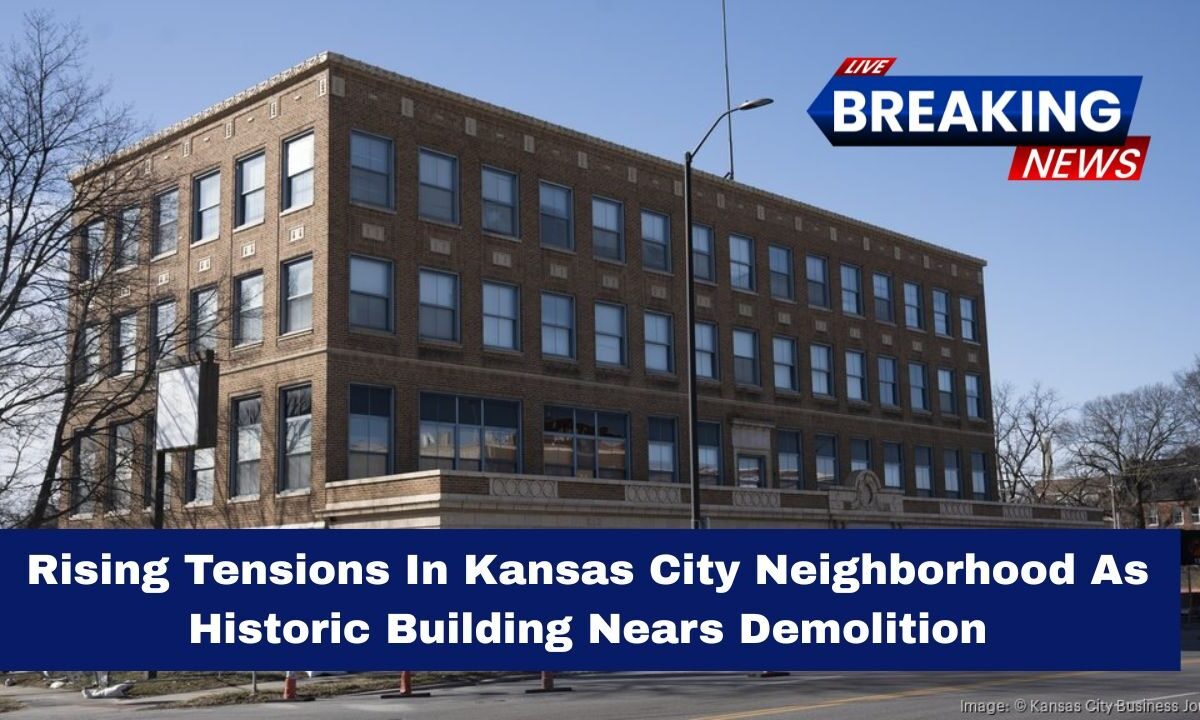Tensions are rising in a Kansas City neighborhood as the nearly 100-year-old Smith Hall at Kansas City University (KCU) faces the possibility of being torn down.
The building, located along Independence Avenue in the Pendleton Heights community, has sparked a heated debate between residents, preservationists, and the university.
The situation has quickly become one of the most talked-about preservation battles in Kansas City this year.
History and Importance of Smith Hall
Built in 1927, Smith Hall originally served as the Children’s Mercy Hospital Nurses Residence. For decades, it housed and trained nurses who served Kansas City’s growing medical community.
Its Colonial Revival and Georgian Revival architecture, marked by brick symmetry, arched entrances, and classic detailing, makes it one of the most recognizable structures in the area.
Kansas City University acquired the building in 1971 and renamed it Leonard Smith Hall. Beyond its architectural charm, the structure serves as an important historic marker linking the medical school and the surrounding Historic Northeast community.
Demolition Permit and 45-Day Delay
In August 2025, KCU submitted an official demolition request for Smith Hall, citing high maintenance costs, outdated layout, structural deterioration, and the need for modern campus expansion.
The request sparked immediate community concern.
On September 26, 2025, the Kansas City Historic Preservation Commission reviewed the demolition plans and placed a 45-day demolition delay on the request.
This pause—extending into November—allows more time for exploring alternatives such as historic designation or adaptive reuse.
The delay does not automatically save the building, but it has created space for public involvement, petitions, and reconsideration.
Why Residents Are Pushing Back
Residents argue that tearing down Smith Hall would further strip the neighborhood of its historic character.
Many point out that the university previously removed other historic buildings and apartments to make space for development, yet several lots remain empty or underused.
Neighbors and preservation groups—including local leaders, the Historic Kansas City organization, and the Pendleton Heights Neighborhood Association—have organized rallies, initiated petitions, and held public meetings to demand transparency.
They believe the building could be converted into housing, offices, community space, or even mixed-income apartments instead of being demolished.
For many, losing Smith Hall would mean losing another piece of the community’s identity.
KCU’s Justification for Demolition
KCU maintains that Smith Hall is no longer suitable for academic or residential use.
The university argues that the aging structure requires significant repair, lacks modern utilities, and is too costly to retrofit.
KCU says it plans to salvage select architectural features if demolition proceeds.
The university has emphasized that future development on the site is expected to support the long-term growth of its medical programs, though detailed plans have not yet been publicly disclosed.
Key Facts About Smith Hall
| Key Detail | Information |
|---|---|
| Location | Independence Avenue, Kansas City, Missouri |
| Year Built | 1927 |
| Original Purpose | Children’s Mercy Hospital Nurses Residence |
| Architectural Style | Colonial Revival / Georgian Revival |
| Current Owner | Kansas City University (KCU) |
| Current Status | Demolition request filed; 45-day delay in effect |
| Community Concern | Loss of historic architecture and reduced housing opportunities |
Growing Divide Between KCU and the Community
The Smith Hall controversy is widening tensions between KCU and nearby residents. While the university insists demolition is necessary for modernization, locals see it as another step toward erasing the area’s historic character.
This dispute has also fueled larger conversations about affordable housing, preservation, and how Kansas City should balance progress with cultural identity.
For many residents, the loss of Smith Hall could set a troubling precedent for future development projects.
As tensions flare in the KC neighborhood, the fate of Smith Hall remains uncertain. With community members demanding preservation and KCU pushing for removal, the coming weeks will be critical.
Whether the building is restored, repurposed or demolished, its future will significantly shape both the identity of Pendleton Heights and the university’s relationship with the community.
For now, all eyes remain on what Kansas City will decide for this historic landmark.




